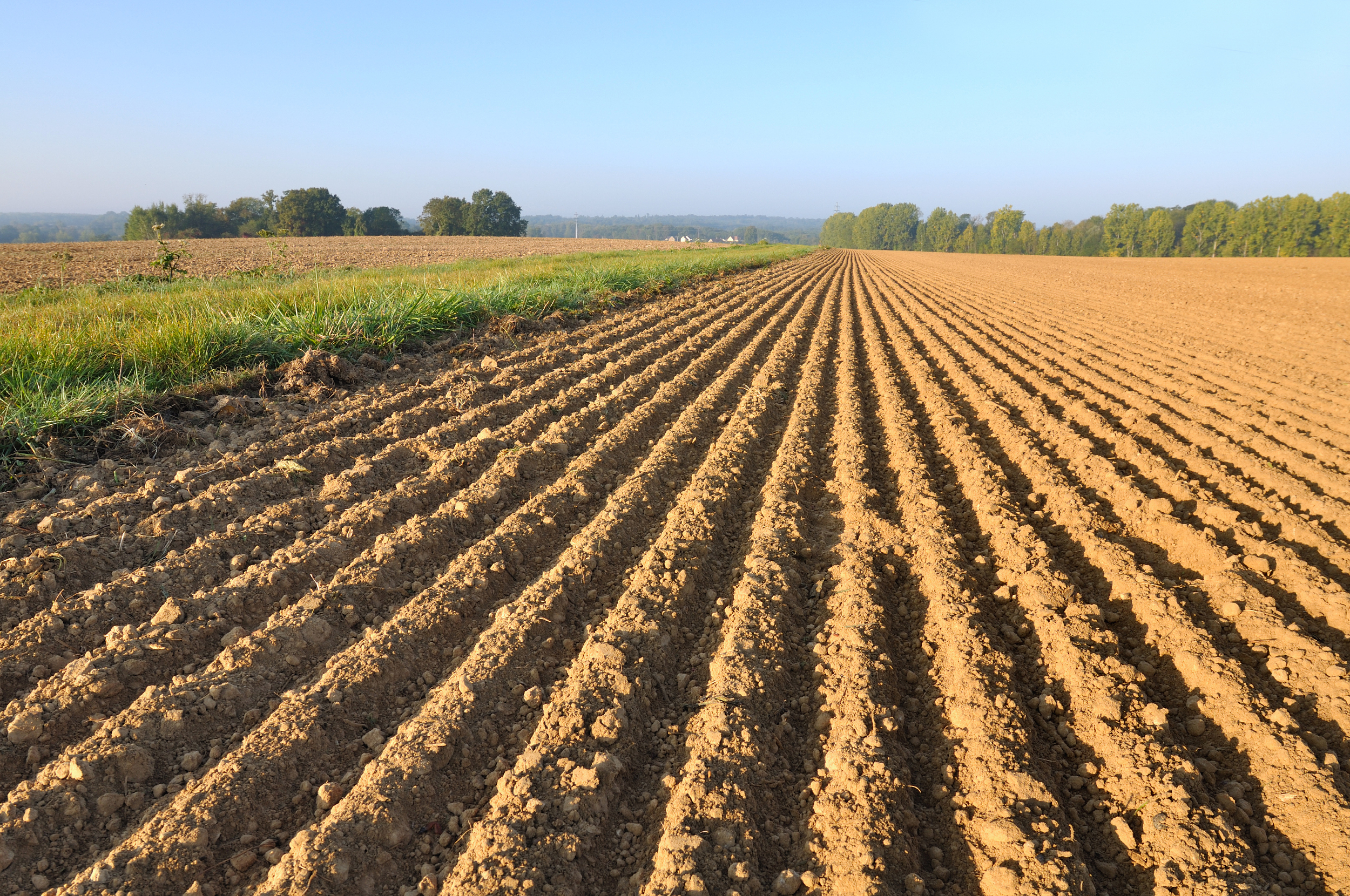Ridge-furrow Method: Innovative Farming

The ridge-furrow method involves, three ditches, one chi wide and one chi deep, which are dug on a long strip of land measuring one mu. (PHOTO:VCG)
By BI Weizi
The ridge-furrow method (Daitian fa) is a farming system invented and popularized by the agronomist Zhao Kuo in the middle of the Western Han Dynasty (202BC-8AD). It involves, three ditches (field drains), one chi (about 33.33 cm) wide and one chi deep, which are dug on a long strip of land measuring one mu (0.0667 ha). The locations of the ditches change every year, hence the name "ridge-furrow method". The seeds are sown in the ditches, and when they germinate and grow leaves, the ridge soil on both sides of the ditches is raked down to bury the roots of the crop during mid-tillage and weeding, which helps to resist wind, lodging and drought.
First, in this method, the ridges and furrows are interspersed. Seeds are sown in the furrow, and after the seedlings emerge, the ridge is flattened with mid-tillage and weeding to protect against wind and drought. Second, the ridges and furrows are exchanged every other year. Since crops are always sown in the furrow, the exchange of ridges and furrows allows the land to rest and regenerate.
The ridge-furrow method was the first new agricultural technique to be organized and promoted by the emperor.Zhao Kuo personally supervised experiments in the countryside and organized local officials and agricultural experts to receive training in the new farming method and new farming tools, and then gradually extended it to other parts of the country.
The implementation of the ridge-furrow method achieved remarkable results in terms of higher yields and more reclaimed fields, which played an important role in the socio-economic recovery of the late Han Dynasty and took the development of agricultural productivity to a new level.







